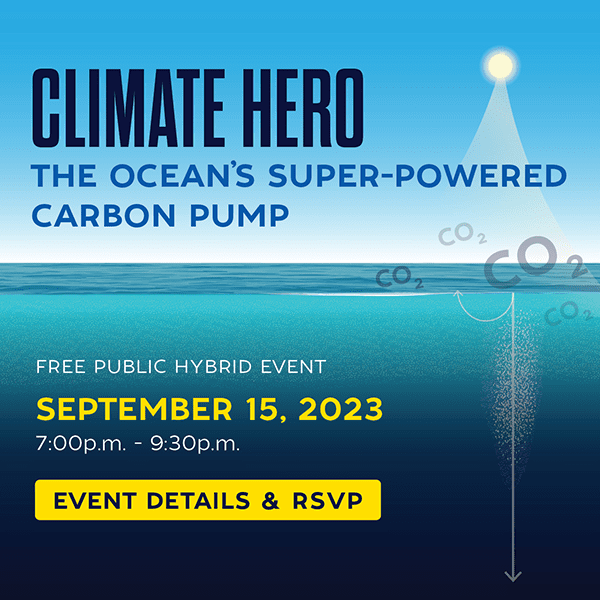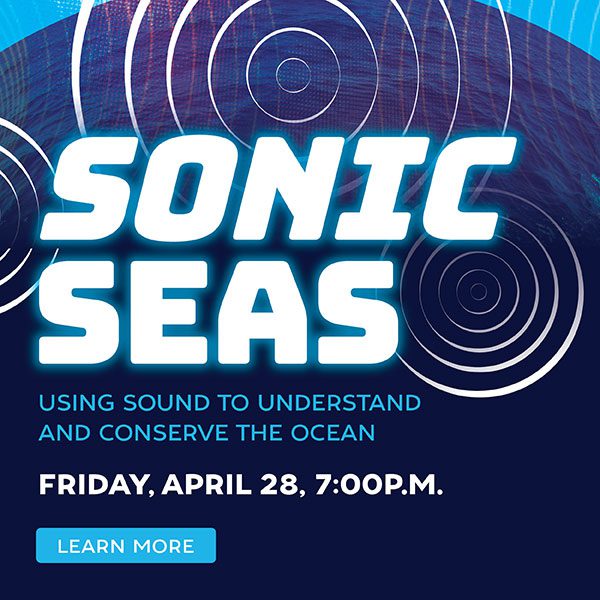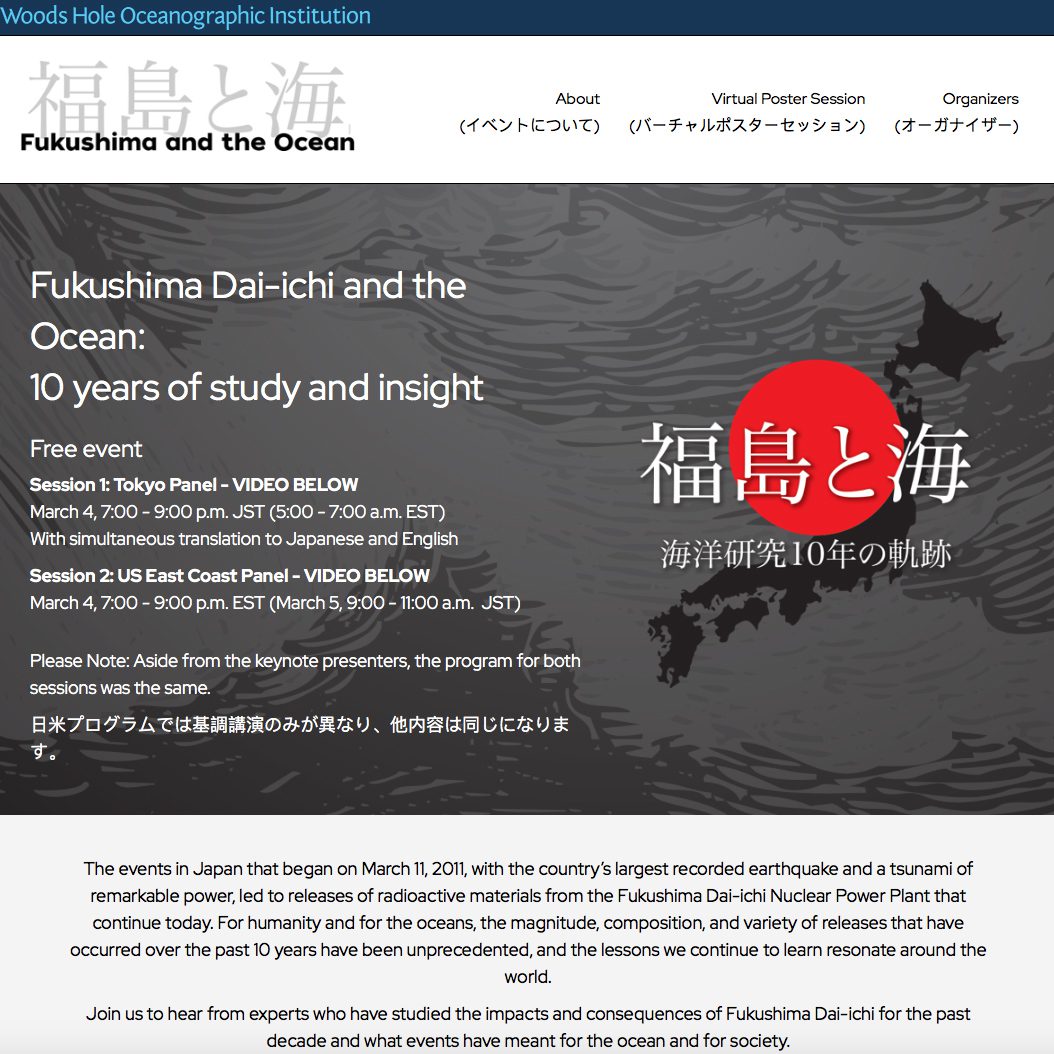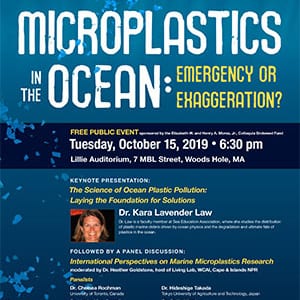Past Colloquia
Climate Hero: The ocean's super-powered carbon pump
Friday, September 15, 2023
Sonic Seas: Using sound to understand and conserve the ocean
Friday, April 28, 2023
Fukushima Dai-ichi and the Ocean: 10 years of study and insight
Thursday, March 4, 2021
Microplastics in the Ocean: Emergency or Exaggeration?
Tuesday, October 15, 2019 • 6:30 to 8 p.m.
Life without Sunlight at Deep-sea Hot Springs
Sunday, August 27, 2017 • 6 to 8 p.m.
Watkins Memorial Marine Mammal Bioacoustics Symposium
Saturday, March 28, 2015 • 7 to 9:30 p.m.
Art Exhibit: From Penguins to Polar Bears: Impacts of Climate Change
Saturday - Sunday, May 10-11, 2014 • 11 a.m. - 4 p.m.
From Penguins to Polar Bears: Impacts of Climate Change
Sunday, May 4, 2014 • 6:30 to 8:30 p.m.
Fukushima and the Ocean
Thursday, May 9, 2013 • 6:30 to 9:00 p.m.
Drought or Deluge
Thursday, May 17, 2012 • 7 p.m.
The Seafood Dilemma: Does It Matter Where We Get Our Seafood?
The balance of US production, imports, wild capture, and aquaculture in US seafood supply.
Where Land & Sea Meet : Managing Shoreline Change Over the Next 100 Years
How fast could sea level rise? How would rising sea level affect our coastline? These questions, and many others, were the subject of this Morss Colloquium.
Precious Metals from Deep-Sea Vents
April 2, 2009
Deep-Sea Mining of Seafloor Massive Sulfides: A Reality for Science and Society in the 21st Century. The 5th Elisabeth and Henry Morss Jr. Colloquium.
Ocean Iron Fertilization
October 19, 2007
“Give me half a tanker of iron, and I’ll give you an ice age” may rank as the catchiest line ever uttered by a biogeochemist. The man responsible was the late John Martin, former director of the Moss Landing Marine Laboratory, who discovered that sprinkling iron dust in the right ocean waters could trigger plankton blooms the size of a small city. In turn, the billions of cells produced might absorb enough heat-trapping carbon dioxide to cool the Earth’s warming atmosphere.
Fire and Ice—Climate Changes of the Past...and Future?
January 30, 2007
A public debate on the lessons from a previous warm interval in Earth's climate history.
The Impact of Hurricane Katrina on Human Pathogens in Lake Pontchartrain
November 18, 2006
The purposes of this colloquium were to provide a forum for the SGER researchers to discuss, summarize and present their combined research results to the public, promote a series of standard rapid response microbial protocols that are derived from the group's sampling efforts, and engage the public in the discussion of public health issues that potentially result from hurricane impacts to the coastal environment.
Lessons from the 2004 Indian Ocean Tsunami
October 31, 2006
To establish a stronger link between the ocean research and engineering leadership of Woods Hole Oceanographic Institution (WHOI) and major national and international hazard mitigation programs, WHOI organized a colloquium on natural disaster management with a focus on the 2004 Indian Ocean tsunami.
















